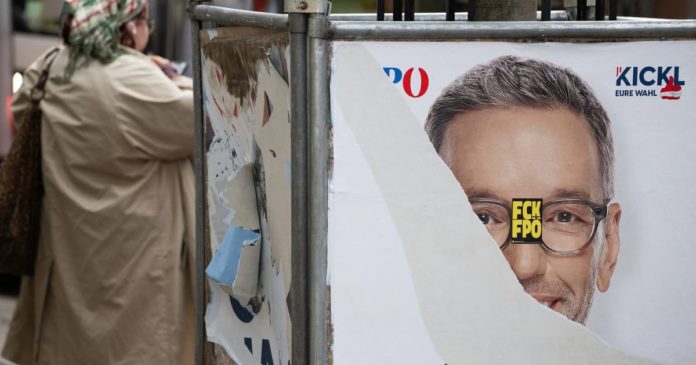Most worryingly, an FPÖ win would establish a populist, Russia-friendly Central European bloc stretching from Ukraine’s border with Slovakia and Hungary to Austria’s frontier with Switzerland, making it easier for President Vladimir Putin to sow discontent at the heart of Europe.
Despite its colorful history of political scandal and corruption, Austria has long competed above its weight category in the EU. That’s largely due to geography. Its location at the center of the Continent has long made the country a fulcrum for trade — the EU’s main north-south corridor cuts through the Tyrol, while Austria’s borders to the east and southeast have served as western Europe’s gateway to the Balkans.
Geography has also made Austria the crossroads for migration flows from the Middle East and Africa. Over the past decade, the country has taken in more refugees per capita than any other EU country, fueling the FPÖ’s resurgence.
Similar to the former East Germany, which never undertook a full reckoning with its Nazi past (and has voted in droves for the far right in recent weeks), Austria spent most of the postwar period running from history, spinning the fiction that it was Hitler’s “first victim.”
Even though the country has made some progress on that front in recent years, the decades it spent living in denial left a deep mark on the country’s political culture, which explains why it’s possible for a party literally born out of Nazism to draw such strong support.
The party maybe have evolved into the kind of anti-migrant, anti-Islam populist force that has taken hold across much of Europe, but it began as a political refuge for former Nazis. Not only has the FPÖ not disavowed that past, it embraces it, at least in private, with the leading party figures regularly getting to trouble for paying quiet tribute to their Nazi forebears.


